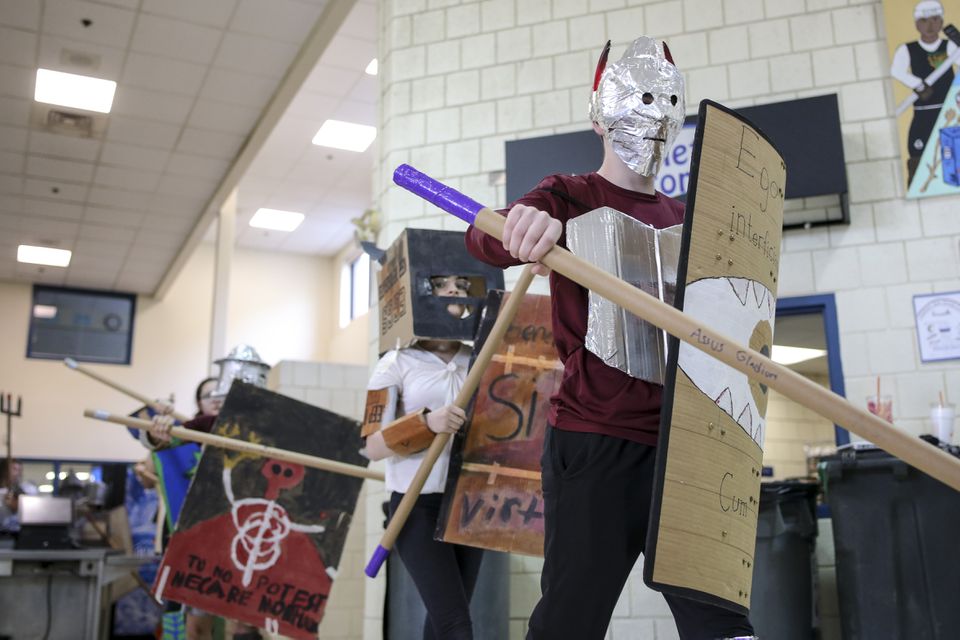“Sanguinem!” the eighth-grade spectators chanted from the sidelines, pounding the tables. Blood!
The annual gladiator battle at Ottoson Middle School is not only about whacking enemies with recyclable swords. It’s also about bringing a supposedly dead language to life by doing something unheard-of in Latin classes of the past: Speaking it.
In schools across Massachusetts and the country, teachers are throwing out the memorized charts of verb conjugations and noun declensions that were once essential to a Latin education, and instead emphasizing the spoken word. The goal is to make Latin more inclusive and more engaging for kids in 2019.
About 20,500 students statewide study Latin, the third-most popular language after Spanish and French, according to The National K-12 Foreign Language Enrollment Survey Report. It might seem strange that students are still signing up, but Latin teachers have a way of illuminating the language’s charms: It is the foundation of fields from medicine to music to poetry, and it offers a portal to 2,000 years of history and literature.
Living Latin has been slowly spreading throughout the classics world. The University of Massachusetts Boston hosts an immersive “conventiculum” every year for teachers and scholars who want to spend a week speaking Latin exclusively; similar programs have popped up around the country. (They’ve introduced some new words: telephonum for phone, rete omnium gentium for Internet, ludus canistrifollis for basketball.)
For scholars who learned Latin the traditional way, these immersive conferences can be jolting.
“The first two or three days, they’re quite tongue-tied,” said Anderson, who helps run the summer conventiculum in Boston. She had studied Latin for 30 years before attending her first immersion course and acknowledged she was afraid to suddenly speak the language she thought she knew so well.

Students learn to speak Latin, ‘the un-dead language’
